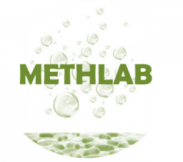Research highlights
Below you will find information on the projects highlighted at the Event. There are many more projects funded in the FACCE-JPI calls and through ERA-NET actions to be viewed in the FACCE-JPI Project Wheel.

DEVIL
https://deliveringfoodsecurity.org/
Feedback Loop Interactions Between Land Use Change and Food Security Dynamics
Action: FACCE-JPI/Belmont Forum
Coordinator: Pete Smith
Lead organisation: Scottish Food Security Alliance-Crops (SFSAC), United Kingdom
Food systems involve a complex interaction of the production, consumption, distribution and access to food at global and regional scales. Combined modeling systems that account for food demand, supply, and an explicit representation of land use are still in their infancy. Thus, the consequences of how various supply- and demand- side measures impact upon, and are influenced by land use change are unknown.
DEVIL combines state-of-the art food system and land use models with spatial datasets and it aims to:
Bring together experienced researchers who have been leading the independent strands of work. This will for the first time permit a detailed examination of the feedback loop interactions between land use change and food security dynamics.
Propose an integrated modeling system that will examine a range of scenarios, including production side measures to improve food security (e.g.,sustainable intensification, redistribution and trade) and demand side measures (e.g., changing diets, reduced waste).
Examine the global feedbacks of these scenarios on land use and food supply as well as asses the differential impacts in the project’s study regions (South America, Sub Saharan Africa, and South Asia).
Agronickel
https://projects.au.dk/faccesurplus/research-projects-1st-call/agronickel/
Developing Ni agromining on ultramafic land in Europe
Action: FACCE SURPLUS First call, 2015
Coordinator: Guillaume Echevarria
Lead organisation: French National Research Institute for Agriculture, Food and the Environment (INRAE), France
European ultramafic soils are rather unfertile, although sometimes still used by agriculture, and contain high concentrations of metals and deficiency of nutrient (nitrogen, phosphorus and potassium; N, P and K).
As a nature-based solution (NBS), the idea of phytomining metals emerged in the 90s and the goal was to cultivate plants able to accumulate trace metals from metal-rich soils and transport them to the shoots, which could then be harvested as a bio-ore to recover highly valuable metals, e.g. nickel (Ni). This concept has evolved as an integrated chain from soil management to production of bio-sourced refined metal products.
Agronickel aims to implement agroecosystems which can lead to better soil resource efficiency and to offer a fully integrated, new agromining agriculture that could cover thousands of km2 in Europe and benefit local communities with sustainable rural development. Traditional agronomy has already been developed for the Ni-hyperaccumulator Alyssum murale.
It is needed a more resource-friendly agriculture: evaluation of all potential crops among Ni-hyperaccumulators and long-term effect on soil fertility and biota; optimisation of ecosystem services and of energy and metal recovery; and re-use of the by-products of the different stages of metal recovery.

METHLAB
https://www.eragas.eu/en/eragas/Research-projects/METHLAB.htm
Refining direct fed microbials (DFM) and silage inoculants for reduction of methane emissions from ruminants
Action: FACCE ERA-GAS First call, 2016
Coordinator: Catherine Stanton
Lead organisation: Agriculture and Food Development Authority (Teagasc), Ireland
METHLAB is focused on implementing the use of lactic acid bacteria (LAB) as an approach to reduce methane emissions from ruminant livestock. The goal is to refine current on-farm LAB technologies such as direct-fed microbial supplements and/or silage inoculants, currently used to increase production and improve health of animals, with a methane-reducing benefit. Selected METHLAB strains will be tested in ruminants (cows and sheep) to confirm efficacy of methane reductions in vivo.
LAB offer a safe, practical and natural way to influence the rumen microbial community for methane mitigation, creating a more sustainable, emission-efficient food production system. LAB are natural inhabitants of the gastrointestinal tract of ruminants but are also well established as industrial micro-organisms, economically produced in large quantities for incorporation into feed products, making them ideally suited as a microbial technology.
METHLAB aims to enhance impact and advance the knowledge transfer of LAB on-farm technologies to address the reduction of enteric methane emissions in ruminant (specifically cattle and sheep) production systems. Using superior microbial inoculants, it wishes to improve the quality of ruminant feeds which will lead to a reduction in methane and enhanced livestock production. METHLAB will thus lead to environmental and societal benefits.

MACSUR
Modelling European Agriculture with Climate Change for Food Security
Coordinator: Martin Banse
Lead organisation: Johann Heinrich von Thünen Institute, Federal Research Institute for Rural Areas, Forestry and Fisheries (Thünen Institute), Germany
FACCE MACSUR gathers the excellence of existing research in livestock, crop, and trade science to describe how climate variability and change will affect regional farming systems and food production in Europe in the near and the far future and the associated risks and opportunities for European food security.
A knowledge hub is an innovative, tailor-made instrument developed by FACCE-JPI, associating 3 complementary dimensions: networking, research and capacity building. The knowledge hub consists of 70 institutions from 18 countries. The overarching challenge is to develop a pan-European capability in the development, use and interpretation of models to perform risk assessments of the impacts of climate change on European agriculture.
In the first phase of FACCE MACSUR (MACSUR 1), the emphasis was put on activities supporting the networking of scientists across and within the crop, grassland, dairy/livestock, farm, and socio-economic modelling communities. It achieved a greater understanding for requirements of different existing approaches used in the modelling communities.
The second phase of FACCE MACSUR (MACSUR 2) built upon the strong links established by networking in MACSUR1 and strove for even greater precision in the scientific work of theme activities. Models, techniques and methodologies already improved during MACSUR1, were used to carry out a new state-of the art Europe-wide climate change risk assessment for farming and food security.
Based on the MACSUR results, a coordinated network of studies that aims to provide policy advice and support policies in response to climate change is being established: the MACSUR Science Policy Knowledge Hub (MACSUR SciPol).